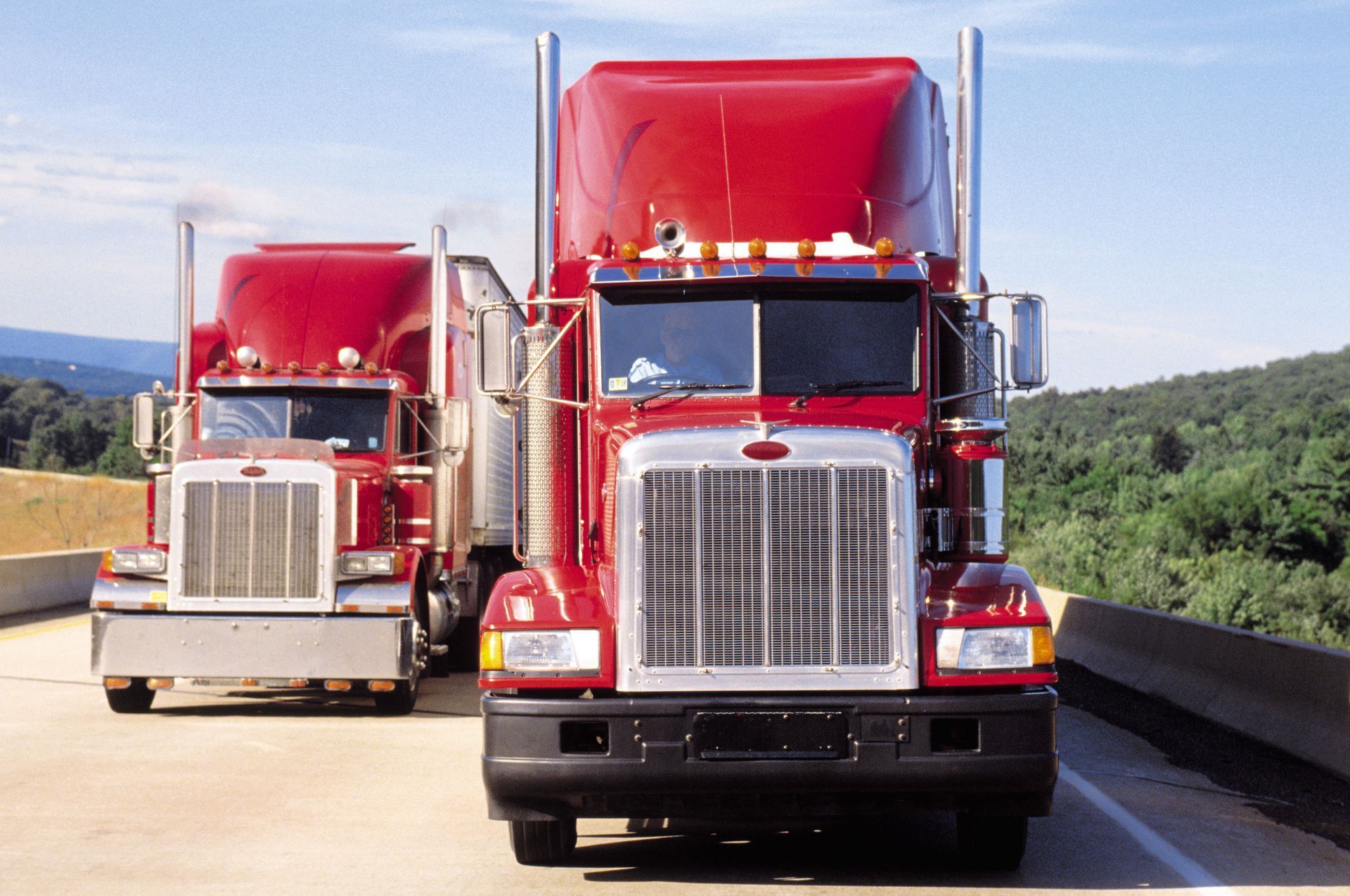
Top 3 Recommended Policies
Trucking insurance is a critical aspect of the transportation industry, especially in Connecticut, where regulations and business needs can significantly impact operations. This article will guide you through everything you need to know about trucking insurance, including its importance, types available, costs, legal requirements, and how to claim insurance when needed.
Understanding Trucking Insurance
Trucking insurance is designed specifically for businesses engaged in the transportation of goods. Unlike standard auto insurance, trucking insurance provides coverage tailored to the unique risks and responsibilities faced by trucking companies. Understanding the basics and the importance of trucking insurance can help operators and owners make informed decisions.
Basics of Trucking Insurance
The primary purpose of trucking insurance is to protect trucking businesses from financial losses associated with accidents, equipment damage, and liability claims. Coverage typically includes various types of insurance that cater to different aspects of the trucking operation. It’s essential for trucking operators to understand the specific coverages that their businesses require to ensure comprehensive protection.
Trucking insurance policies can be complex, often including multiple aspects such as liability, physical damage, and cargo protection. Many providers offer customizable insurance packages that allow trucking companies to tailor their coverage based on their unique operational needs. For instance, liability insurance protects against claims resulting from injuries or damages caused by the truck driver, while physical damage coverage safeguards the vehicle itself from accidents, theft, or vandalism. Additionally, cargo insurance is crucial for protecting the goods being transported, providing peace of mind to both the trucking company and its clients.
Importance of Trucking Insurance
The trucking industry is fraught with risks, from accidents on the road to cargo damage or loss. Having the right trucking insurance in place not only protects your business assets but also ensures compliance with state and federal regulations. Failing to have adequate insurance coverage can lead to severe financial repercussions and legal issues. Moreover, in many jurisdictions, having a minimum level of insurance is a legal requirement for operating commercial vehicles, making it essential for trucking companies to stay informed about the regulations that apply to their operations.
Furthermore, trucking insurance also enhances the credibility of your business. Clients are more likely to work with a trucking company that carries sufficient insurance, as it minimizes their risk exposure. This aspect fosters strong business relationships and facilitates smoother operational workflows. Additionally, having comprehensive insurance can also provide a competitive edge in the marketplace, as it demonstrates professionalism and a commitment to safeguarding both the business and the clients' interests. In an industry where trust is paramount, being adequately insured can be a significant factor in attracting and retaining customers, ultimately contributing to long-term success.
Types of Trucking Insurance in Connecticut
In Connecticut, various types of trucking insurance cater to different operational needs and risks associated with the trucking industry. Understanding these types is crucial for selecting the appropriate coverage for your business.
Liability Insurance
Liability insurance is fundamental for any trucking business. It covers bodily injury and property damage that occur due to an accident involving your trucks. In Connecticut, trucking companies are required to carry minimum liability coverage to operate legally.
It's important to opt for sufficient coverage to protect against high potential costs arising from claims. As accidents can create significant financial liabilities, ensuring your liability insurance limits are adequate is critical. Additionally, it’s advisable to consider higher limits than the state minimum, as legal fees and medical expenses can quickly escalate, especially in severe accidents involving multiple parties.
Physical Damage Insurance
Physical damage insurance provides coverage for damages to your trucks and trailers. This can include damages from accidents, vandalism, or natural disasters. In the Connecticut trucking landscape, this coverage is essential, as repairs or replacements can incur significant costs.
Trucking companies should evaluate the value of their vehicles and ensure that their physical damage insurance reflects that value. This ensures that in the event of a loss, the company can recover significant costs for repairs or replacement. Moreover, many insurers offer options for comprehensive and collision coverage, which can provide additional layers of protection against a wider range of incidents, including theft or damage from falling objects.
Cargo Insurance
Cargo insurance protects the goods being transported by your trucks. This coverage is vital, especially for businesses that handle high-value or sensitive cargo. In instances of theft, damage, or total loss, cargo insurance helps mitigate financial losses and provides peace of mind.
When purchasing cargo insurance, consider the nature of the cargo transported and its associated risks. Customized cargo insurance policies can be designed to meet specific needs, ensuring optimal protection while transporting goods. Furthermore, understanding the terms of coverage, such as whether it includes coverage during loading and unloading, can be crucial for businesses that frequently handle delicate or perishable items, as these factors can significantly impact overall risk exposure.

How to Choose the Right Trucking Insurance
Choosing the right trucking insurance can be a daunting task. It involves evaluating various factors to ensure that your coverage adequately meets your operational needs. Here are some key aspects to consider.
Assessing Your Needs
The first step in selecting suitable insurance is assessing your unique needs. Evaluate the type of cargo you transport, the distance of your routes, and the size of your fleet. This assessment should also include considering your company’s budget for insurance.
Additionally, consider potential risks associated with your operations, such as high-traffic regions or unfavorable weather conditions. Understanding these factors will help identify the coverages that are most relevant to your business. For instance, if you frequently transport perishable goods, you might require specialized coverage for spoilage or temperature control failures. Similarly, if your routes take you through areas prone to severe weather events, you may want to look into policies that cover weather-related damages.
Comparing Insurance Providers
Once you know your insurance needs, the next step is to compare different insurance providers. Look for companies specializing in trucking insurance, as they will have better knowledge of the market and can tailor policies based on specific risks.
Obtain multiple quotes and examine not only the costs but also the coverage options each provider offers. Reading customer reviews and testimonials can provide insights into their customer service and claims process, which can be invaluable in times of need. Consider reaching out to other trucking companies for recommendations or insights into their experiences with different insurers. Networking within the industry can often reveal hidden gems or potential pitfalls that you might not find in online reviews.
Understanding Policy Terms and Conditions
Before finalizing any insurance policy, it's crucial to thoroughly read and understand the terms and conditions. Pay attention to exclusions, limits, and specific requirements that may affect your claim in the future.
Don't hesitate to ask questions or seek clarification if there are any unclear terms in your policy. Having a solid understanding of your insurance contract can prevent misunderstandings down the line and ensure you have adequate coverage in place. Additionally, consider the importance of regular policy reviews. As your business evolves, so too will your insurance needs. Keeping an open line of communication with your insurance agent can help you make necessary adjustments to your coverage, ensuring that you are always protected against new risks or changes in your operations.
Cost of Trucking Insurance in Connecticut
The cost of trucking insurance can vary widely based on numerous factors. It's important to understand these factors to better manage your insurance expenses and budget accordingly.
Factors Influencing Insurance Cost
Several factors can influence the cost of trucking insurance, including:
- Type of Coverage: Comprehensive coverage typically costs more than basic liability coverage.
- Driving History: A driver's history of accidents or violations can raise premiums.
- Type of Truck: More valuable or larger vehicles often incur higher insurance rates.
- Business Location: Areas with higher crime rates or accident statistics may lead to higher premiums.
Understanding these factors can help trucking companies make informed decisions when looking for competitive rates. Additionally, the nature of the cargo being transported plays a crucial role in determining insurance costs. For instance, hauling hazardous materials or high-value goods can significantly increase premiums due to the elevated risk associated with such cargo. Furthermore, the age and condition of the truck can also impact rates; older vehicles may be seen as less reliable and more prone to accidents, leading insurers to charge higher premiums.
Ways to Reduce Your Insurance Cost
Reducing insurance costs is essential for maintaining a profitable trucking business. Here are several strategies to consider:
- Bundling Policies: Many insurers offer discounts for bundling multiple insurance policies.
- Improving Safety Standards: Investing in safety training and equipment can lead to lower premiums.
- Increasing Deductibles: Opting for higher deductibles can reduce premium costs.
By implementing these strategies, trucking companies can achieve significant savings on their insurance premiums without sacrificing essential coverage. Additionally, regular maintenance of vehicles not only ensures safety but can also lead to lower insurance costs, as well-maintained trucks are less likely to be involved in accidents. Engaging with an insurance broker who specializes in trucking can also provide valuable insights and help businesses find tailored coverage options that meet their specific needs, potentially uncovering discounts that may not be widely advertised. Moreover, staying updated on industry trends and regulatory changes can help trucking companies adapt their insurance strategies accordingly, ensuring they remain compliant while optimizing their expenses.
Legal Requirements for Trucking Insurance in Connecticut
Understanding the legal requirements for trucking insurance in Connecticut is crucial for compliance and operational integrity.
State Regulations
Connecticut mandates a minimum amount of liability coverage for all commercial vehicles, including trucking operations. It’s essential to stay updated on any changes to local regulations to ensure compliance.
Failure to meet state insurance requirements can result in penalties, fines, and even legal action, which can severely affect a company's reputation and operations. Additionally, companies must be aware that the state also requires proof of insurance to be readily available in the vehicle at all times, which means drivers should carry their insurance cards and documentation to avoid unnecessary complications during inspections or traffic stops.
Furthermore, certain types of cargo may require higher levels of coverage, and understanding these nuances can help trucking companies tailor their insurance policies to better fit their operational needs. For instance, transporting hazardous materials or oversized loads may necessitate additional endorsements or specialized coverage options to comply with both state and federal laws.
Federal Regulations
In addition to state requirements, federal regulations impose specific insurance obligations on trucking companies, especially those engaging in interstate commerce. These regulations aim to ensure the safety of roadways and protect the public from the inherent risks associated with commercial trucking.
Adhering to these federal guidelines is essential, as violations can lead to serious legal repercussions and disruptions in business activities. The Federal Motor Carrier Safety Administration (FMCSA) sets forth these requirements, which include minimum liability coverage amounts that vary based on the type of cargo being transported. For example, trucking companies that haul non-hazardous freight must maintain a minimum of $750,000 in liability coverage, while those transporting hazardous materials may need to carry up to $5 million in coverage.
Moreover, trucking companies must also consider the importance of maintaining accurate records of their insurance policies and ensuring timely renewals. Regular audits by the FMCSA can occur, and having comprehensive documentation readily available can streamline the process and demonstrate compliance. This diligence not only safeguards the company against potential fines but also builds trust with clients and partners who rely on the company's commitment to safety and regulatory adherence.

Claiming Trucking Insurance in Connecticut
In the unfortunate event of an incident, knowing how to file a claim effectively is critical for getting your business back on track. Here’s a breakdown of the process.
When to File a Claim
Timeliness is crucial when filing insurance claims. Generally, you should file a claim immediately after an incident, whether it's an accident, theft, or damage. Delaying a claim can affect your chances of receiving compensation and can also lead to complications during the claim process.
Documenting the incident thoroughly, including taking photographs and gathering witness statements, can also aid in supporting your claim. It’s also advisable to keep a detailed log of any expenses incurred as a result of the incident, such as towing fees, repairs, or even lost income due to vehicle downtime. This comprehensive record can bolster your claim and provide your insurer with a clearer picture of the incident’s impact on your operations.
How to File a Claim
To file a claim, contact your insurance provider as soon as possible. Most companies have dedicated claims departments to handle trucking insurance claims efficiently.
Be prepared to provide detailed information, including police reports, accident details, and any correspondence related to the incident. Following the insurer’s specific claims process carefully will help ensure that your claim is processed quickly and accurately. Additionally, it’s beneficial to familiarize yourself with the terms of your policy, as understanding the coverage limits and exclusions can help you navigate the claims process more effectively. If you encounter any challenges or delays, don’t hesitate to reach out to your insurance agent for assistance; they can provide valuable guidance and advocate on your behalf to expedite the resolution of your claim.
Frequently Asked Questions about Connecticut Trucking Insurance
Many trucking operators have similar questions regarding trucking insurance. Here are some commonly asked questions and their answers.
Can I Drive Without Trucking Insurance in Connecticut?
No, it is illegal to operate a commercial vehicle without the necessary trucking insurance in Connecticut. Failing to carry adequate insurance can result in hefty fines, penalties, and a suspension of your operating license.
It's essential to ensure you have the appropriate insurance before any business operations to protect yourself legally and financially. Additionally, operating without insurance can expose you to significant liability risks. If an accident occurs, you could be held personally responsible for damages, which may lead to costly lawsuits and financial ruin. Therefore, investing in proper insurance is not just a legal requirement but a crucial step in safeguarding your business and personal assets.
What Does Trucking Insurance Cover in Connecticut?
Trucking insurance coverage can vary widely depending on the policy. Typically, it includes liability coverage, physical damage insurance for your vehicles, cargo insurance for your goods, and sometimes additional coverage options like roadside assistance and environmental liability.
Reviewing your policy closely and discussing with your insurance provider can clarify the extent of your coverage and any additional options that may be beneficial for your business. For instance, many trucking companies opt for comprehensive coverage that protects against theft, vandalism, and natural disasters, ensuring that they are not left vulnerable to unforeseen events. Furthermore, specialized coverage for hazardous materials or high-value cargo can be crucial for operators in niche markets, providing peace of mind and financial protection tailored to their specific needs.
Contact Us
Phone
Locations
Connecticut Location
703 Hebron Ave., 3rd Floor, Glastonbury, CT 06033
North Carolina Location
436 East 36th St., Charlotte, NC 28205


